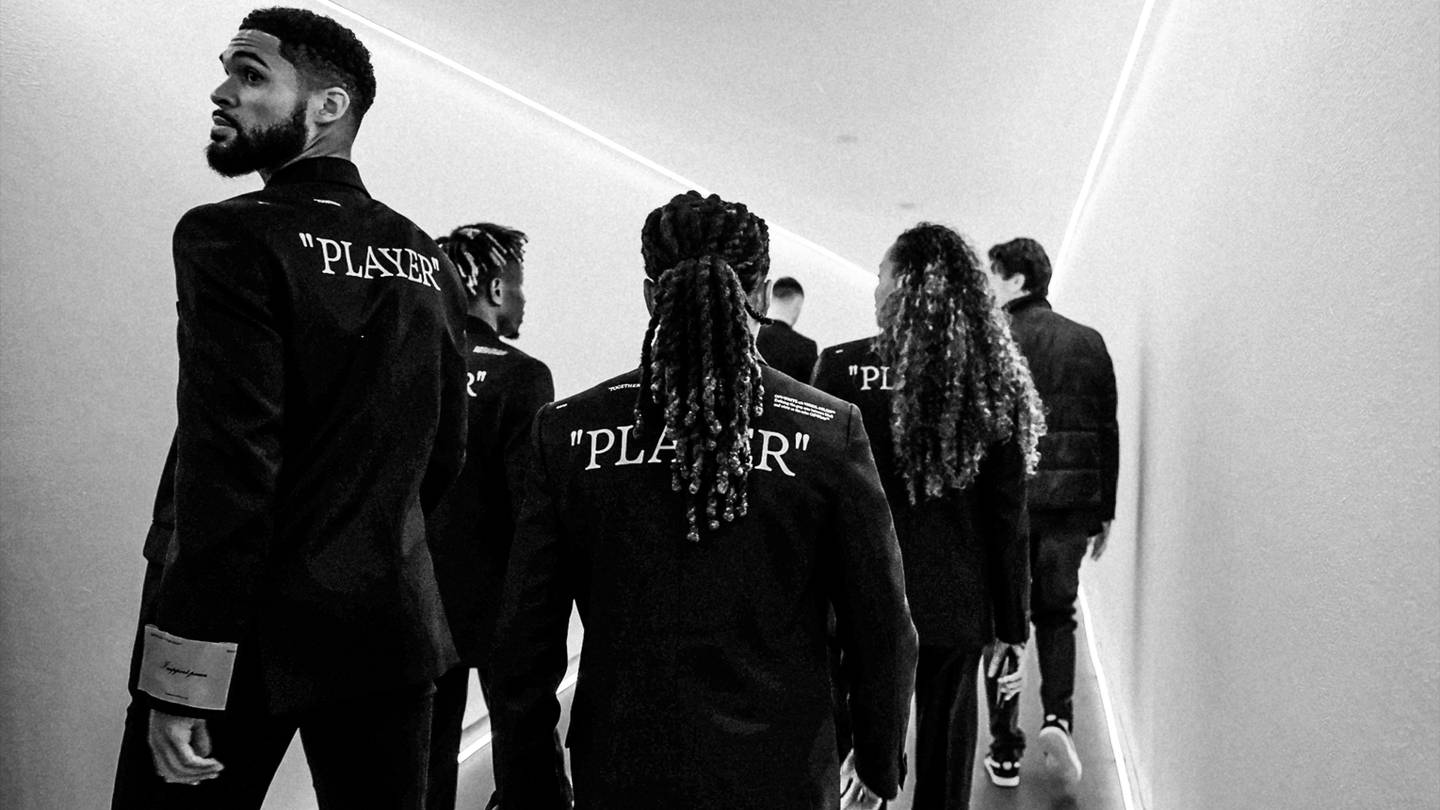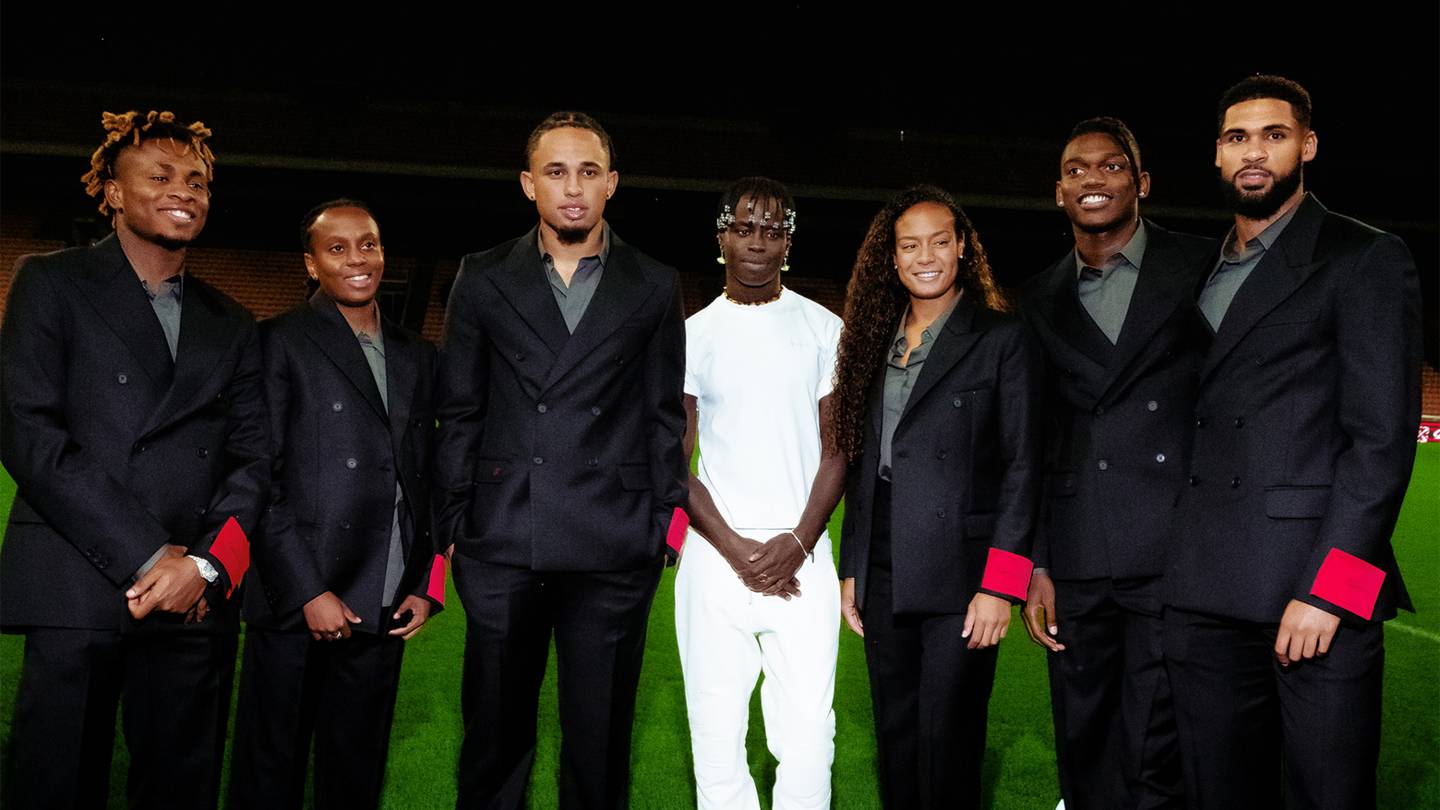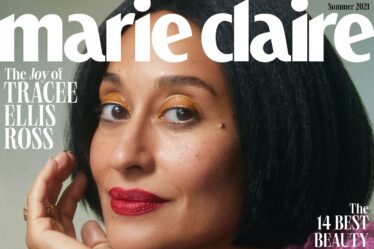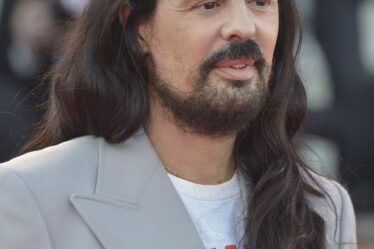
When AC Milan took the field this month in its home game against Napoli â a clash of two of Italyâs most historic football clubs â the Milanese team donned blacked-out jerseys designed by Los Angeles streetwear brand Pleasures.
Designated as the teamâs official fourth kit, the limited edition apparel the team will play in for select games this season with one âlightâ and one âdarkâ colourway, the jerseys feature references to the cityâs gothic architecture as well as hip-hop culture.
It was an unlikely partnership: the punk-inspired indie streetwear label worn by celebrities like Kylie Jenner and The Weeknd had no prior connection to the Italian sports mainstay. But the commercial reception to it was phenomenal.
The initial launch of the collaboration, when replica jerseys went on sale for fans, was AC Milanâs most successful day in terms of e-commerce sales, up 69 percent above its last record, according to the team. The $180 cream-coloured version of the jersey proved to be the biggest hit and has become an all-time bestseller, now trading on StockX for as much as $290.
The Pleasures tie-up may have been a surprise to traditional football fans, but it was by no means an accident. AC Milan has pursued a number of partnerships â including tapping Off-White as its official âstyle and culture curatorâ â since its $1.2 billion acquisition by US investment firm RedBird Capital Partners in August 2022. Under new ownership, the team has positioned itself as not only a football club but a lifestyle brand, creating new revenue streams through thoughtfully designed merch that goes beyond one-off collaborations.
AC Milanâs infiltration of fashion has gone further than any football team before, even Franceâs Paris Saint-Germain, which not so long ago was the favoured sports collaborator by brands like Dior, Stüssy and Jordan. Its new Qatari owners also invested heavily in growing the teamâs brand, but lost its allure to fashion when two of its all-stars, Lionel Messi and Neymar Jr. left the club in quick succession (their final standout player, Kylian Mbappé, is set to depart this summer).
Unlike PSG, AC Milan does not have the same kind of international stardom in its squad that automatically comes with cultural cachet. The team forged its collaborations as part of a global marketing strategy rather than pegged to any one player, and therefore is less at risk of losing its prestige when the best athletes leave. Its long-term partnership with Off-White, which produced several collections for the menâs and womenâs teams off-field use as well, also provides a level of insider access to the fashion industry that has never been achieved by another team before.
The Pleasures partnership was designed with the teamâs 27 million North American fans in mind, and it yielded the right results: the US accounted for the most sales of the Pleasures jersey outside of Italy. It was also intended to reach younger fans, and over 60 percent of sales went to consumers aged under 30.
AC Milan has a concerted strategy to reach new regions and demographics, according to chief commercial officer, Maikel Oettle. âWhat the Pleasures launch has shown is that the team has a lot more commercial relevance away from the pitch than we might think sometimes,â he said.
A New Playbook for Fashion in Sports
AC Milan is by no means alone in trying to diversify its brand using fashion. In recent years, teams and leagues across the spectrum of sports have begun to regard themselves as cultural entities, hiring creative directors, collaborating with designers and even opening fashion-forward flagship stores. American and Middle Eastern investment has poured into European sports, with new owners like RedBird and Clearlake Capital, the new owner of British football team Chelsea FC, intent on boosting revenues by growing their fanbases in new regions and beyond sports purists.
This hasnât happened overnight. The European football industry is notoriously conservative and wary of the âNBA-ificationâ of the sport, with projects like fashion collaborations often seen by traditional fans as distractions to a teamâs on-field performances.
Yet AC Milan appears to be cracking the code by creating a thorough fashion playbook independent of its football prowess. Its new owner is intentional about courting younger consumers as well as keeping traditional fans happy, all while leveraging its heritage as the hometown team for one of the worldâs biggest fashion capitals.
âWhen RedBird took over, we basically identified a strategy to play at the intersection of sports, entertainment and culture,â said Oettle. âAnd a big part of culture today is fashion.â
One big reason why AC Milanâs pursuit of fashion has worked is because it invests in marketing, not just identifying partners with which to create one-off products, said Oettle.

For example, to launch its most recent Off-White collection, Milan partnered with Vogue Italia and renowned French fashion photographer Thibaut Grevet to work on its launch campaign, which featured star players Rafael Leão and Ruben Loftus-Cheek. Days ahead of the launch in September, AC Milan hosted a Milan Fashion Week dinner on the pitch at the San Siro stadium where players, influencers and other VIP guests mingled with the likes of Off-White artistic director Ib Kamara.
In March 2022, the team put on a showcase for its limited edition streetwear capsule with Koché made of upcycled football jerseys during Paris Fashion Week.
AC Milanâs unique deal with its kit manufacturer, Puma, is another crucial piece of its fashion strategy. The German sportswear giant acts as a valuable conduit to the fashion industry, helping facilitate collaborations with brands like Koché and Pleasures. Eagle-eyed fans would have spotted AC Milanâs role at the brandâs New York Fashion Week âFutrogradeâ show, where Puma teased an upcoming collection with the team.
âMilanâs success as a fashion player is built on the fact that its partnerships appear authentic,â said Lauren Cochrane, a fashion and sports reporter at The Guardian. âItâs not just the club ticking a box⦠they already have that streetwear credibility.â



